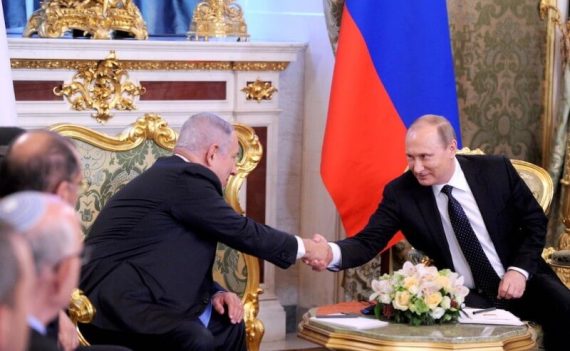A
mid the recent Israeli onslaught on Gaza, Russia’s positioning has introduced new complexities to its relations with Israel, according to experts. James Nixey, Director of the Russia and Eurasia Program at Chatham House, and Nikolay Kozhanov, a Research Associate Professor, have pointed out that the Gaza War has served to align Russia against Israel, primarily by diverting U.S. attention and resources away from Ukraine.
This shift in focus is seen as beneficial to Russian interests, potentially weakening U.S. support for Ukraine and allowing Russia’s activities, such as withdrawing from the nuclear test ban treaty and the sabotage of the Baltic-connector pipeline, to fly under the radar.
The conflict has also ended Moscow’s longstanding policy of balancing relations between Israel and its neighboring states. As Russia’s engagement in Ukraine drives it closer to Iran, Israel increasingly views Russia as an ally of Hamas rather than a neutral mediator. This perspective is bolstered by Russia’s welcome of a Hamas delegation in October and its failure to condemn the initial Hamas attack.
Read: Report: Wagner to Transfer Missile Defense System to Hezbollah?
Russia is gaining favor
Russia’s approach to the Gaza genocide has been reflected in its broader narrative against U.S. expansionism, with Moscow expressing sympathy for both Israel and Palestine in ways that Western countries often cannot. However, Russia’s indirect accusations against Kyiv selling weapons to Hamas and its attempts to position itself as a mediator have been met with skepticism from both Israelis and Palestinians.
The developments suggest that Russia is gaining favor in the Arab part of the Middle East and the Global South, aiding its economic resilience against Western sanctions and creating a stance more aligned with Hamas. This alignment also complements China’s position, which is perceived as pro-Palestinian and a counterbalance to the West’s support for Israel.
For Ukraine, the conflict presents a complex challenge, as it competes with Israel for Western support and resources. The war has forced Ukraine to navigate a delicate balance, striving to maintain the moral high ground and the support of its Western allies amid shifting geopolitical allegiances.
Russia’s pivot in the Middle East raises Israel’s concerns
The ongoing war in Gaza has realigned Russia’s position in the Middle East, increasingly setting it against Israel, suggest James Nixey and Nikolay Kozhanov, experts on Russian affairs. This realignment serves Russia’s geopolitical interests by potentially diminishing U.S. support for Ukraine and obscuring Russia’s aggressive actions in Europe.
The conflict has also strained Russia’s ability to maintain a balanced approach to Middle East diplomacy, particularly in its relations with Israel.
The Hamas-Israel war has also provided an opportunity for Russia to enhance its narrative as a counterforce to U.S. influence, a stance that may gain traction in the Global South.
The situation presents a strategic conundrum for Ukraine as it grapples with its own conflict with Russia while needing to maintain Western support, which may now be more divided due to the Gaza War.
The dynamics of the conflict have put additional pressure on Ukrainian President Volodymyr Zelenskyy to carefully navigate the complex geopolitical landscape shaped by the war’s impact on global alliances and regional security.
Source: The Chatham House
Recommended





